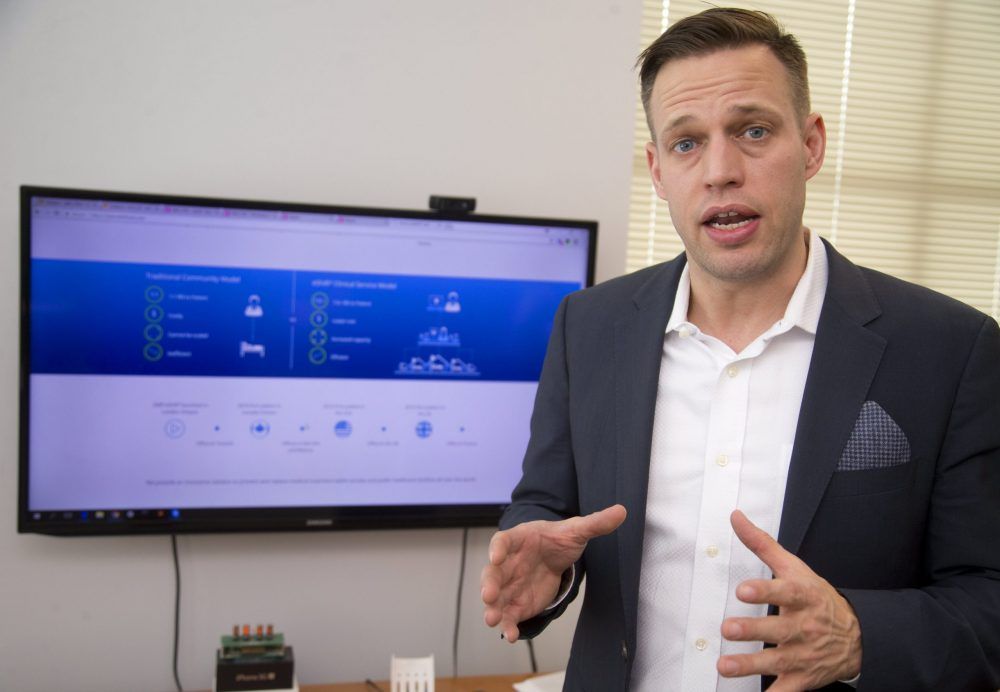Content of the article
A London software developer has struck a deal with a Texas-based healthcare provider to enable remote patient care.
Content of the article
Sensory Technologies on Collip Circle is partnering with Resilient Healthcare which will use Sensory’s eShift software for home patient care.
For Sensory Technologies, this is a major breakthrough in the US market, said chief executive Patrick Blanshard.
“This is a big deal. This really is a significant growth opportunity and it sets us apart as a clear symbiotic partner in the healthcare system. We are adding value,” he said.
“There is a problem and an opportunity. There are severe staff shortages due to COVID and with that there is an opportunity.
“We’re full throttle in this space right now, in the United States,” Blanshard said.
The software allows a healthcare professional, such as a nurse or doctor, to support multiple patients in their home by connecting with a caregiver, such as a personal support worker, using a device mobile. Patient care information can be exchanged, allowing the patient to stay longer at home.
Content of the article
Healthcare agencies in England, France, other US cities and Ontario also use eShift.
“COVID has been a struggle and it’s driving many changes that are working well for Sensory Technologies. We no longer have to explain the value of what we’re doing. It’s now, ‘How can we do it?.’ It’s growing market share, it’s exciting,” Blanshard said.
Home care reduces costs, improves access for patients who do not have to travel to a hospital or health care center, and makes better use of staff, as fewer professionals can see more patients .
“By integrating Sensory Technologies’ eShift into our platform, we solve two problems,” said Jackleen Samuel, CEO of Resilient.
“First, we are solving a staffing problem, which has had a dramatic effect on hospitals. This enhances our ability to do more with our existing staff. Second, it improves the quality of our care, as we will integrate and deliver a live, physician-led acute and post-acute care component.
Resilient offers home care, and the Sensory Technologies software will improve the quality of care through better reporting, coordination of medical staff and better patient tracking, Samuel said.
The software has also proven popular closer to home. In Ontario, five home and community support services, formerly the Local Health Integration Networks, use the software.
Sensory Technologies was founded in 2009 and employs approximately 25 people in Canada, Europe and the United States.


